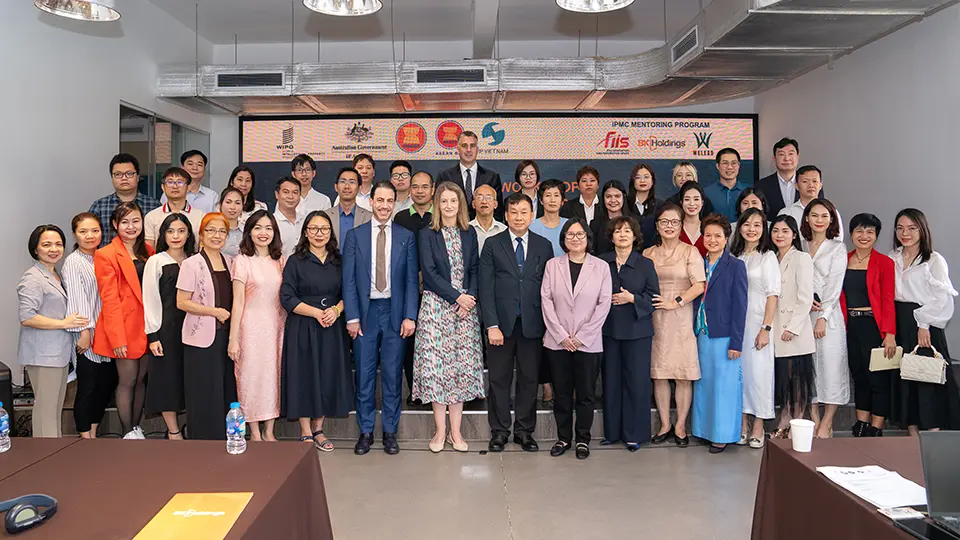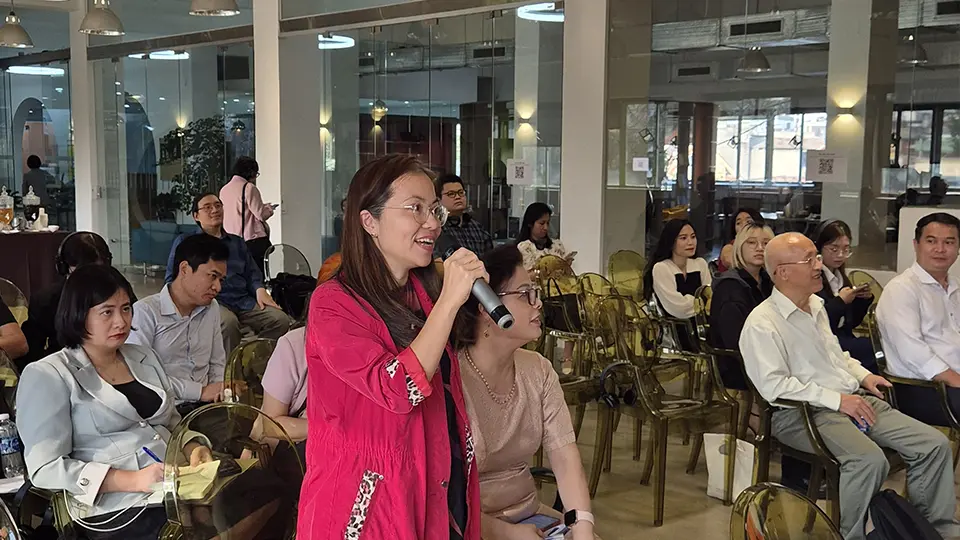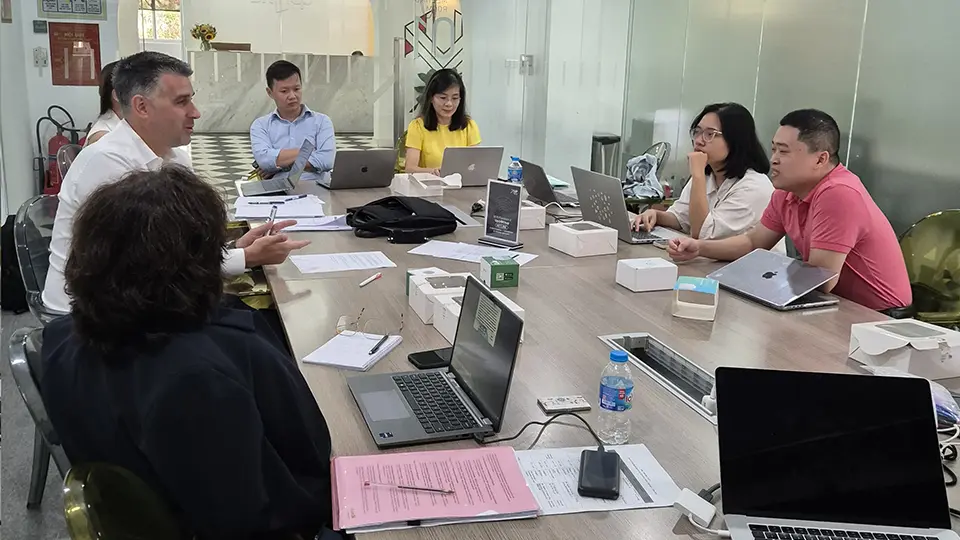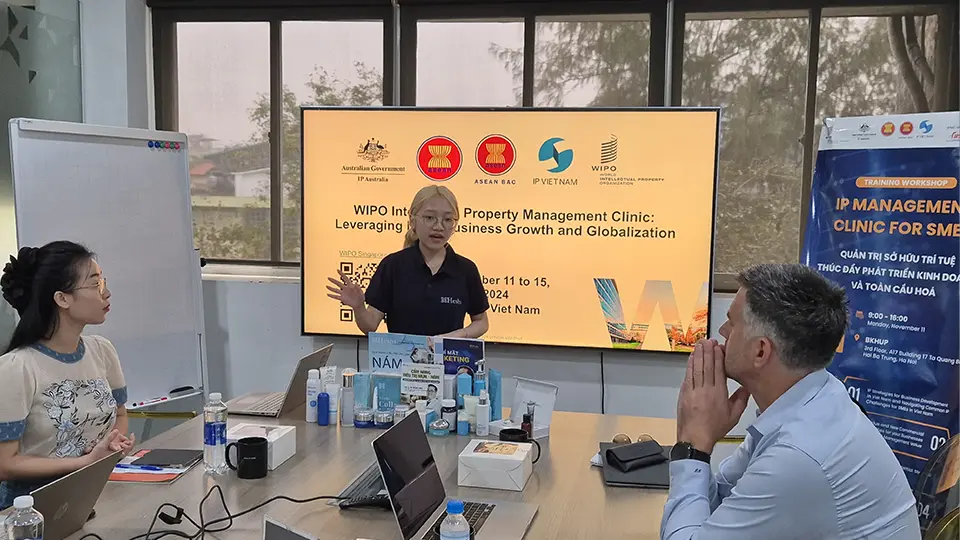WIPO Scaled-up IP Management Clinic (IPMC) Guiding Tech Startups and SMEs in Viet Nam to Leverage IP for Innovation and Business Growth
November 15, 2024
The IPMC Program was successfully launched in Hanoi, Viet Nam during November 11-15, 2024 by the WIPO Singapore Office (WSO) and the IP for Business Division, WIPO, in close collaboration with the IP Office of Viet Nam, the ASEAN Business Advisory Council, the ASEAN Secretariat, BK Holdings – Hanoi University of Science and Technology, and WeLead Viet Nam. This program was carried out with the invaluable assistance from IP Australia.
Driven by a young, tech-savvy population and with strong government support, Viet Nam is quickly becoming a tech hub in Southeast Asia. The country’s focus on AI, digital transformation andsemiconductors as well as startup ecosystem has enabled it to climb two spots to rank 56th globally in the Global Startup Index and to be the 5th best country for startups in Southeast Asia at present. As such, establishing a comprehensive IP strategy has become crucial for managing businesses’ intangible assets so as to stay ahead of the curve, drive innovation, maintain and diversify market shares, and remain an attractive target for investors both at home and abroad.

A total of 42 participants (with 24 being women) from 24 startups and SMEs attended the kick-off event on November 11, 2024. The participating companies came from technology-related industries such as education technology, biotechnology, food technology, agriculture technology, information technology, and healthcare technology as well as from the cosmetic and pharmaceutical sectors.
Opening remarks were delivered by Mr. Tran Le Hong, Deputy Director General, IP Viet Nam; Ms. Cecilia Brennan, Economic Counsellor and Acting Deputy Head of Mission, Australian Embassy in Viet Nam; Ms. Thitapha Wattanapruttipaisan, Director, WSO; and Ms. Silvija Trpkovska, Counsellor, IPBD, WIPO. It was generally highlighted that the strategic use of IP as an integral part of business strategy is crucial for the growth and expansion of SMEs. In addition, collaboration among key partners and stakeholders would remain an important catalyst and driver in fostering and sustaining the development of an innovative and inclusive IP ecosystem in Viet Nam.
During the workshop segment of the IPMC, several engaging presentations and insightful discussions were articulated as regards, for example, how businesses can establish a competitive advantage, increase brand recognition, attract investors and generate new revenue streams by protecting, leveraging and monetizing their IP and other intangible assets. Resource persons for this segment included Dr. Luca Dalessandro, Consultant, IP Strategies for Business Development of BK Holdings; Mr. Frank Fougère, Director and Founding Partner, Ananda Intellectual Property Ltd., Thailand; Ms. Le Thi Thu Ha, Director, FTU Innovation and Incubation Space (FIIS); Ms. Silvija Trpkovska, Counsellor, IPBD, WIPO; and Mr. Nguyen Hong Lam, CEO and Founder of Hong Lam Joint Stock Company.

In the following four days, the ten selected enterprises participated in one-on-one mentoring sessions with the experts whereby their respective business models were discussed and followed by an analysis of the IP-related or driven aspects of their products, services and technologies. A variety of challenges and opportunities in integrating IP as part and parcel of the companies’ own business strategies and the enhancement the values of their business were identified. Moreover, recommendations were also provided by the experts on how to further strengthen and diversify their IP portfolios and values. In general, the companies requested advise on issues such as patent, copyright, trademark, and trade secret and the international protection of such IP and intangible assets.

Follow-on online advisory sessions will be conducted in the upcoming months to dive deeper into their specific business and IP needs in moving forward. As such, the IPMC program is not only expected to enhance IP-related awareness and knowledge of the companies but also to strengthen the foundation for commercial advantage and further growth. In the process, it will have served as a crucial instrument in positioning the participating companies more favorably and strongly within the highly competitive and fast changing market in the digital economy.
